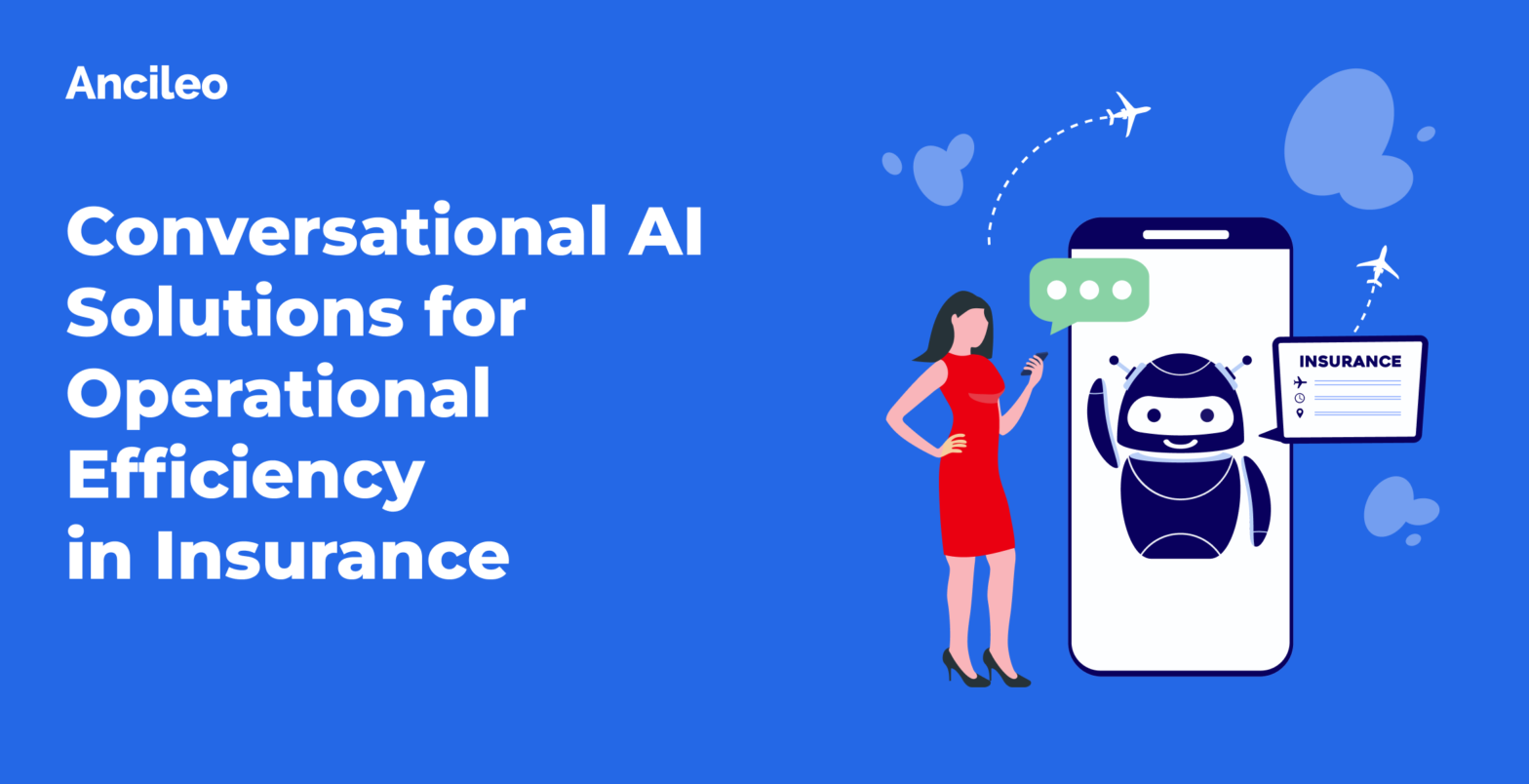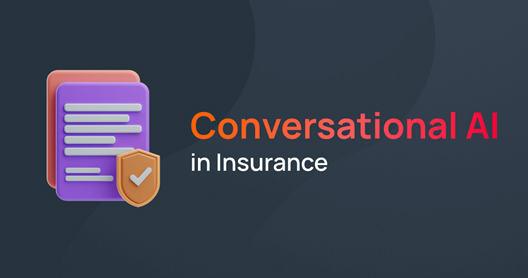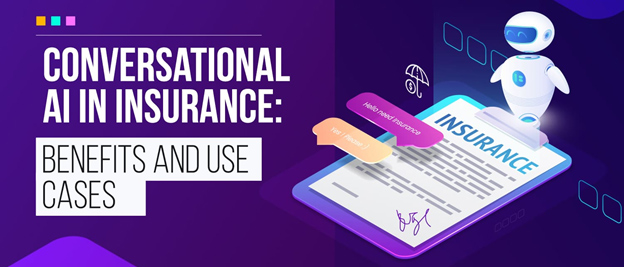
Conversational AI is revolutionizing the travel insurance industry by enhancing operational efficiency through streamlined communication. In today’s fast-paced digital world, travel insurance companies are increasingly adopting conversational AI solutions to provide personalized experiences, improve operational agility, and reduce response times. A survey shows that 44% of US citizens are comfortable using chatbots for insurance premiums.
With its complex processes and regulatory requirements, the travel insurance industry can significantly benefit from the automation and efficiency gains of conversational AI voicebot insurance. Insurers can free up human resources to focus on more strategic activities and complex cases by automating routine tasks such as claims processing, underwriting, and policy inquiries.
Conversational AI voicebot insurance plays a crucial role in fraud detection and prevention within the insurance sector. Undermining this importance, we will review how this technology helps travel insurers mitigate risks and minimize financial losses associated with fraudulent claims. Let’s get started!

Source: Conversational AI in Insurance Industry: Use Cases and Solutions (aisera.com)
The travel insurance industry increasingly utilizes conversational AI for insurance solutions to streamline processes and enhance customer experiences. Here are some examples of conversational AI insurance solutions.
Virtual assistants powered by conversational AI voicebot insurance are crucial in enhancing customer experience within the insurance sector. These AI-driven assistants are available around the clock to address customer queries promptly. Virtual assistants can use natural language processing (NLP) and machine learning algorithms to understand and respond to real-time customer inquiries, providing personalized and contextually relevant information.
This proactive approach enhances customer satisfaction and fosters a sense of trust and reliability in the insurer’s brand. Virtual assistants can retrieve relevant information from backend systems and databases within seconds, whether checking policy coverage, premium payments, or renewal dates. It eliminates the need for customers to wait on hold or navigate through complex IVR systems, leading to a more seamless and efficient experience.
Traditionally, insurance companies managed claims through manual, labor-intensive processes. When somebody files a claim, it triggers a series of steps involving paperwork, documentation, and human decision-making. Claims handlers would manually review documents, assess damages, verify policy details, and communicate with various parties involved. These processes were often time-consuming, prone to errors, and needed more scalability.
Insurance conversational AI has emerged as a transformative solution for automating claims processing in the insurance industry. Chatbots and virtual assistants with AI capabilities can handle claim submissions, gather relevant information from policyholders, and perform initial assessments. By automating routine tasks and accelerating decision-making, AI-driven systems significantly reduce the time required to settle claims.
Effective customer engagement is crucial for insurers to build strong relationships with policyholders, enhance brand reputation, and drive business growth. Personalized engagement becomes even more critical in the insurance sector, where the products are intangible and often complex.
These AI-powered virtual assistants are available 24/7, enabling policyholders to seek information and support conveniently. Chatbots can handle various queries, including policy coverage, premium payments, claims status, and renewal reminders. By natural language processing (NLP) capabilities, chatbots can understand user queries, provide accurate responses, and even escalate complex issues to human agents when necessary.

Source: Conversational AI in Insurance: Benefits and Use Cases – Matellio
Conversational AI insurance offers numerous benefits to the travel insurance industry, including efficient underwriting, personalized support, and streamlined claims settlement processes. Here are some conversational AI in insurance benefits.
Conversational AI streamlines the underwriting process by automating data collection, analysis, and risk assessment. Through natural language processing (NLP) capabilities, AI powered chatbots can interact with applicants to gather relevant information and assess their risk profile efficiently. AI algorithms can expedite underwriting decision-making, enabling insurers to evaluate risks accurately and offer competitive premiums. Automating underwriting tasks reduces manual errors and processing time and enhances operational efficiency.
Conversational AI enables insurers to deliver personalized support and assistance to policyholders throughout their insurance journey. Chatbots can use customer data and interaction history to understand individual preferences, anticipate needs, and tailor recommendations accordingly. Additionally, AI-powered virtual assistants can offer proactive guidance, such as policy renewal reminders, coverage updates, and risk management tips, based on each customer’s unique profile and circumstances.
Conversational AI is crucial in streamlining the claims settlement process, making it faster, more transparent, and more customer-centric. Chatbots can guide policyholders through the claims reporting process, collect necessary information, and provide real-time updates on claim status. Through automated claims assessment algorithms, AI systems can analyze claim data, assess liability, and expedite claim approvals based on predefined criteria. It reduces claims processing time, improves accuracy, and enhances overall efficiency.
VisitorsCoverage Inc. has introduced Luna, an innovative AI chatbot designed to enhance customer service and streamline the complexities of travel insurance. Luna, the first of its kind in the travel insurance sector, utilizes artificial intelligence and machine learning to provide accurate and relevant responses to customer inquiries. Since its establishment in 2006, VisitorsCoverage has consistently embraced emerging technologies to elevate the customer experience and drive digital transformation within the industry.
As a global company with customers spanning various time zones, VisitorsCoverage recognizes the importance of delivering exceptional customer service regardless of location. Implementing Luna ensures customers receive timely assistance and support, reinforcing the company’s commitment to customer education and innovation in simplifying travel insurance processes. This initiative underscores VisitorsCoverage’s ongoing efforts to leverage conversational AI solutions for operational efficiency, marking a significant milestone in enhancing the overall customer experience.
AG2R La Mondiale is a prominent French insurance group that integrates Inbenta’s conversational AI chatbot across multiple websites to address user queries efficiently. Utilizing two distinct chatbot instances and an AI-based FAQ section, the insurer handles approximately 550 sessions daily, translating to about 16,500monthly sessionsh. Most of these interactions, constituting two-thirds, occur on the contact page, indicating a substantial potential for deflected contact demands.
Notably, the insights from the insurance chatbot have empowered AG2R La Mondiale to identify and address customer frustrations effectively. The chatbots efficiently handle a substantial volume of user sessions, particularly on critical pages such as the contact and collective work convention pages. This strategic integration of conversational AI streamlines customer interactions and operational effectiveness in the insurance domain.
Conversational AI solutions in insurance, exemplified by Allianz’s Allie, facilitate frequent and convenient client interactions, enhancing personalization in offerings. Allie serves as a 24/7 online assistant, addressing customer inquiries promptly. Such AI implementations increase customer touchpoints, ensuring insurers’ round-the-clock availability to provide tailored products and services, thereby improving operational efficiency.
Commercial insurers use conversational AI to enhance client engagement and tailor offerings effectively. For instance, Allianz’s Allie offers continuous support, demonstrating the potential for AI to provide personalized assistance and guidance. By employing such AI solutions, insurers can optimize operational efficiency by expanding points of contact with customers and delivering tailored services on demand.
GEICO has implemented a user-friendly virtual assistant to assist prospects and existing customers with insurance-related inquiries. However, the virtual assistant primarily initiates conversations and offers information rather than directly fulfilling requests such as generating insurance quotes and redirecting users to sales pages.
Despite this limitation, the chatbot demonstrates proficiency in understanding user intents, efficiently providing relevant links in response to custom queries. Additionally, upon concluding interactions, the bot solicits user feedback regarding issue resolution and overall satisfaction, enhancing operational efficiency and user experience in the insurance sector through conversational AI solutions.

Source: 6 AI Implementation Challenges And How To Overcome Them (elearningindustry.com)
Implementing conversational AI in the insurance industry requires a comprehensive approach. By addressing the following challenges, insurers can harness the full potential of conversational AI solutions.
One of the primary challenges in implementing conversational AI solutions for insurance is addressing data security and privacy concerns. To overcome this challenge, insurers can implement robust data encryption protocols, access controls, and authentication mechanisms to safeguard customer data throughout its lifecycle. Additionally, insurers should adhere to stringent regulatory requirements, such as GDPR and CCPA, and conduct regular security audits and assessments to proactively identify and mitigate potential vulnerabilities.
Another challenge is training and adapting the workforce to use new technologies effectively. As insurers integrate conversational AI into their operations, employees may require training to familiarize themselves with AI-powered tools, platforms, and workflows. Insurers can overcome this challenge by offering comprehensive training programs, workshops, and resources. Additionally, insurers can promote a culture of continuous learning and innovation and adapt to evolving roles and responsibilities in the digital age.
Another critical challenge for insurers is ensuring a smooth transition to conversational AI while managing customer expectations. Customers may have varying levels of comfort and familiarity with AI-powered chatbots, leading to concerns about service quality. To address this challenge, insurers should communicate transparently with customers about introducing conversational AI. Insurers can proactively gather customer feedback, address concerns, and refine AI-driven solutions to better meet customer needs and expectations.
The future of Conversational AI in the travel insurance industry is bright, driven by evolving technologies, predictions for widespread adoption, and a commitment to continuous innovation. As conversational AI continues to evolve, advancements in natural language processing (NLP), machine learning, and speech recognition technologies will be pivotal in transforming the insurance industry.
These innovations will enable AI-powered chatbots to understand and respond to customer inquiries more accurately and efficiently, enhancing the overall customer experience. Additionally, integrating voice-enabled assistants and virtual reality (VR) technologies may further revolutionize how insurers interact with customers, providing immersive and personalized service experiences.
To remain competitive in the evolving landscape, insurers must prioritize continuous innovation and stay ahead of industry trends in Conversational AI. It involves investing in research and development to explore emerging technologies. Insurers can adapt to changing customer demands, regulatory requirements, and market dynamics, positioning themselves as leaders in adopting and implementing Conversational AI solutions.
In conclusion, Conversational AI has emerged as a powerful tool for enhancing operational efficiency within the travel insurance industry. AI-powered chatbots have enabled insurers to deliver faster, more accurate, and cost-effective services. From efficient underwriting and claims processing to personalized customer engagement, Conversational AI solutions have revolutionized how insurers interact with policyholders, agents, and other stakeholders, driving productivity, scalability, and overall performance improvements.
The transformative role of AI technology, particularly Conversational AI, will continue to shape the insurance industry’s future. As insurers embrace digital transformation and leverage advanced technologies to drive innovation, they will unlock new opportunities for growth, differentiation, and value creation. Ultimately, the convergence of technology and insurance will redefine how risks are assessed, policies are underwritten, and claims are processed, ushering in a new era of efficiency, agility, and customer-centricity in the insurance sector.